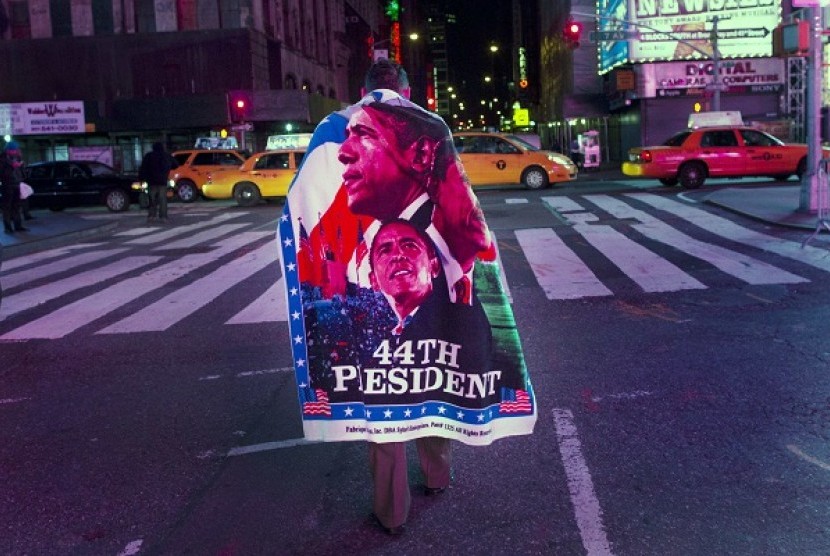REPUBLIKA.CO.ID, BEIJING - China's official media said on Wednesday that ties with the United States were uneven in President Barack Obama's first term and mutual trust was "whittled down", but his re-election offered an opportunity to put the relationship back on track.
A commentary issued by state-run Xinhua news agency shortly after Obama's election win seemed to indicate a sense of relief that continuity will be assured as Chinese leaders embark on their own transition of power. But it acknowledged that sore issues remained between the world's largest and second-largest economies.
"As the two countries have been ever more economically interwoven, a new U.S. government perhaps should start to learn how to build a more rational and constructive relationship with China," Xinhua said.
"The new Obama administration perhaps should bear in mind that a stronger and more dynamic China-U.S. relationship, especially in trade, will not only provide U.S. investment with rich business opportunities, but also help to revive the sagging global economy."
Losing Republican nominee Mitt Romney had talked tough on China throughout the campaign, repeatedly saying he would cite Beijing as a "currency manipulator" on his first day as president.
Obama, by contrast, struck a less confrontational tone. But last year, he announced a U.S. "pivot" toward Asia that focuses attention on the Asia-Pacific and has unnerved Beijing. Now, as a re-elected president, he must manage a relationship that has become steadily more fraught across a range of issues, including trade, currency and commercial espionage.
"With China-U.S. relations in such turmoil, no one can predict (if Obama) will adopt a strategically, economically and politically more benign policy toward China," said Shi Yinhong, director of the Centre for American Studies at Renmin University in Beijing. "It's possible, but not necessarily so."
On Thursday, China begins its own once-a-decade leadership handover as it opens its 18th Communist Party Congress. The new party chairman is virtually certain to be current Vice President Xi Jinping, who will take over as president in March.
President-designate Xi and other Chinese leaders face competing pressures in managing the relationship with Washington. They acknowledge that stability in the U.S.-Sino relationship is of vital interest to Beijing.
But they also must deal with constituencies inside the party and the People's Liberation Army who are comfortable with an increasingly assertive Beijing pressing its own interests, particularly in its own backyard.
At the same time, tens of thousands of American troops are based to China's immediate east and west, in Japan, South Korea and Afghanistan. Washington has bilateral defence treaties with Australia, New Zealand, the Philippines, Japan and South Korea. U.S. planes and warships regularly circulate near China's borders.


